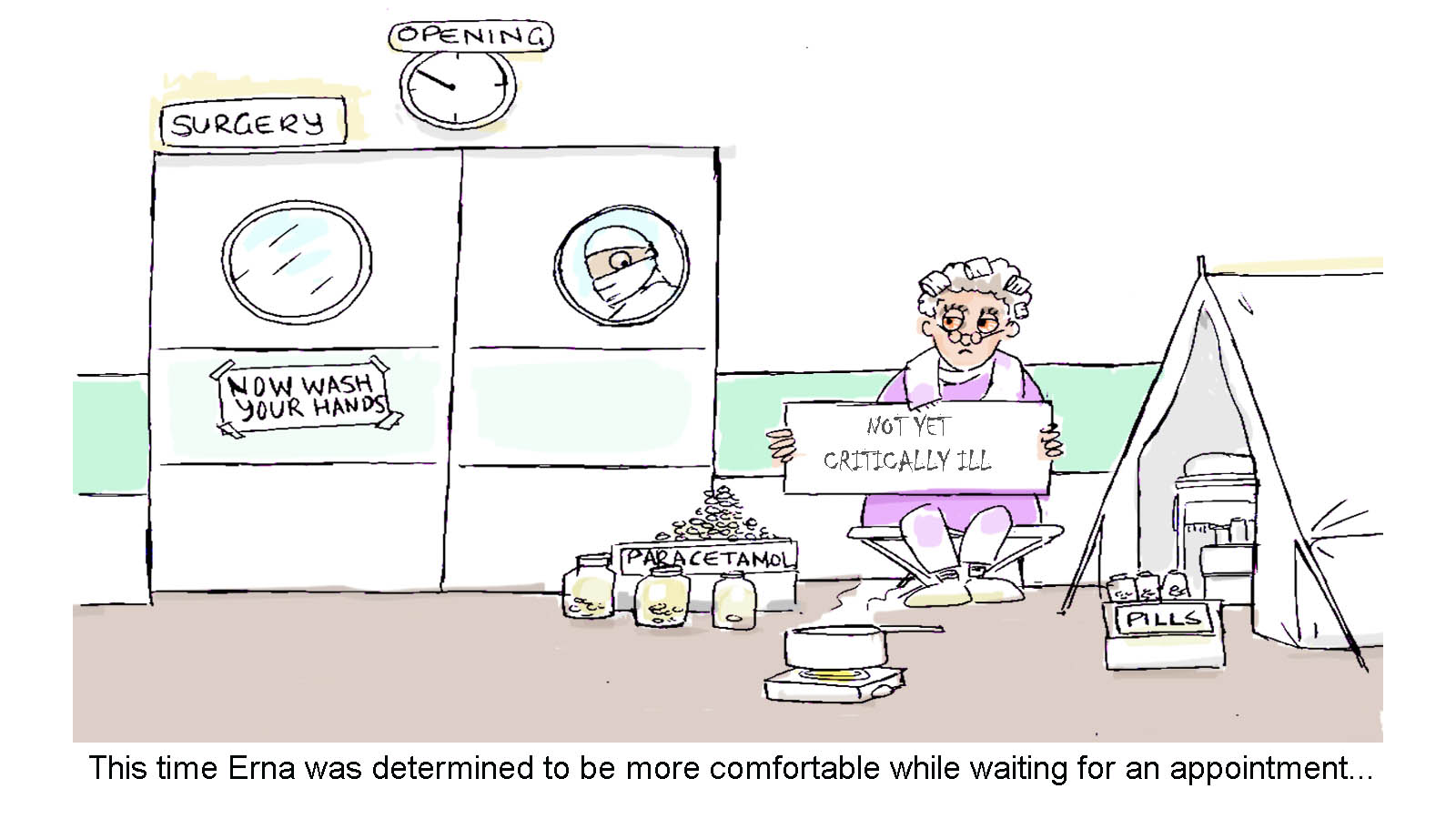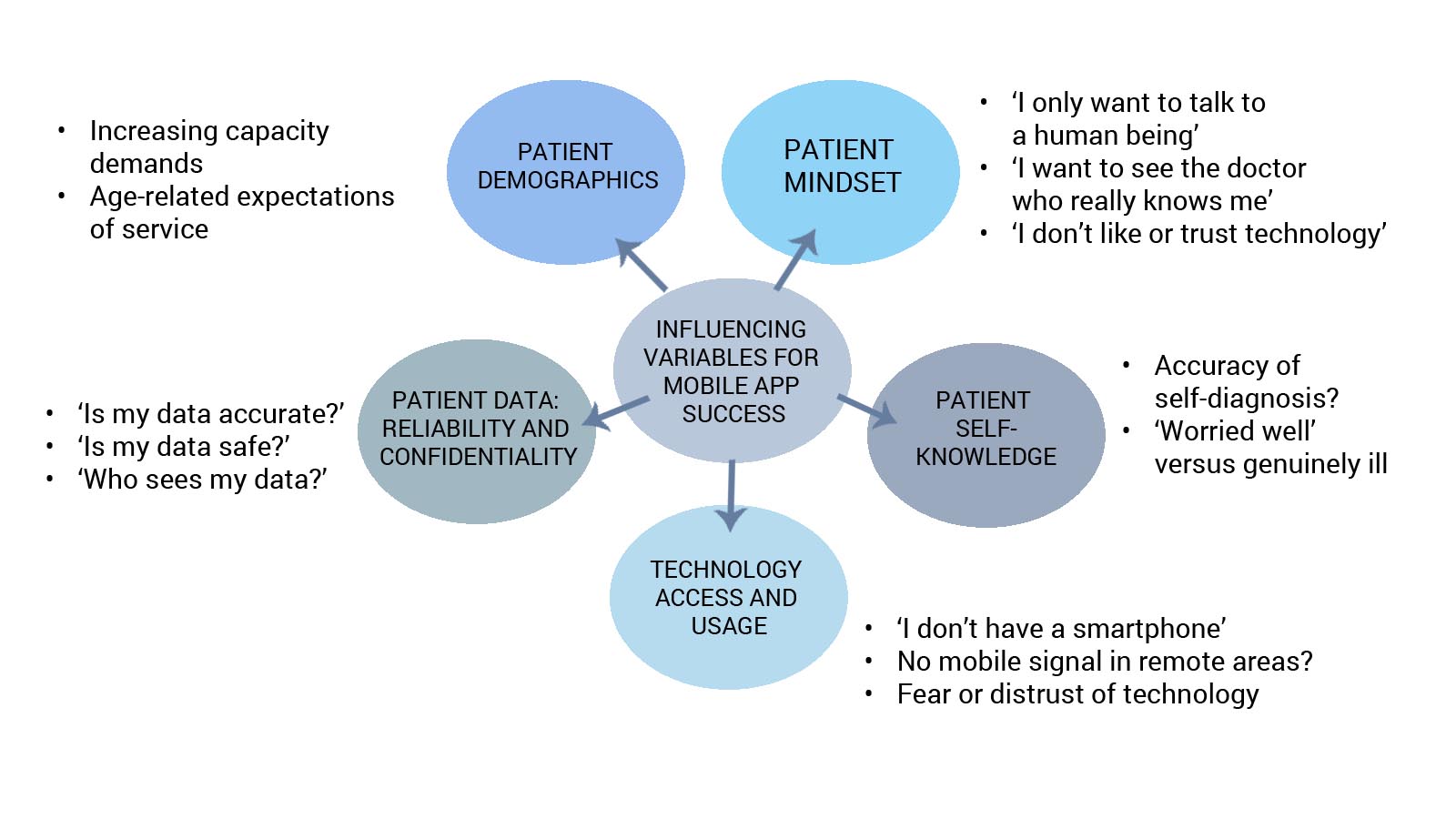What is the Impact of Thinking at the Wrong Level? An NHS Case Study
Categories Case Studies and Stories from the Battlefield
Maybe you think complexity is just an academic concept, nothing to do with your daily life.
What happened the last time you rang your doctor’s surgery for an appointment? Got through first time? Were you seen the same day? If so, lucky you. Many others have quite different experiences (sometimes I feel I should camp outside the surgery door in the manner of an Apple product launch day….). In addition, if you want continuity of care under one doctor – someone whose judgment is enhanced by comprehensive knowledge of their patients’ medical history and personal circumstances – your chances diminish even further.
Quick Fixes Based on Limited Understanding of Complexity
So, imagine the excitement when, recently on BBC Radio 4, a new mobile app was announced and lauded as a breakthrough in frontline medical diagnosis and the capacity solution for overworked under-resourced doctors.
The premise sounds simple enough. You type your symptoms into the app and receive a range of responses from ‘here’s what you can do for yourself’ to ‘speak to a doctor’ or ‘go to the Emergency Department’. The obvious idea is to preserve doctors’ precious time for complicated cases and then appointment schedules will be more available.
How many loopholes can you see in this solution? What additional issues may arise?
The solution sounds as if it has been created with cause-effect thinking, a linear journey from problem to decision. For an issue of operational level of complexity this thinking process could be enough. But is this particular issue as simple as that?
Looking Below the Surface
I’m no medical expert but as a frequent-flyer user of frontline medical services over the years I have some observations to draw upon.
Firstly, the efficiency, or otherwise, of the medical appointments system is influenced by factors outside it and so any technological solution needs to take account of them. Here is my take on some of these factors:

Not Just a Sticking Plaster
The underlying problem is one of systemic complexity, not just purely an operational issue. How patients want to receive medical treatment, the health service’s decreasing capacity to deal with increasing levels of chronic illness due to aging population, unhealthy lifestyles, environmental issues, poverty: these are the bigger questions which arise and provide the context for what appears to be an operational service problem. The mobile app solution may well contribute to some efficiencies in certain situations but cannot, by itself, address the core issues of a health service facing strategic challenges of trading off short-term versus long-term priorities. We need prevention more than cure and systemic cures rather than sticking plasters of shiny technology. Technology will surely play an important part of medical service provision, but can only succeed if more fundamental issues are addressed – and that needs courage and strategic thinking of the disruptive kind.
Let’s leave that to another blogpost though…...
by Christine Baker
